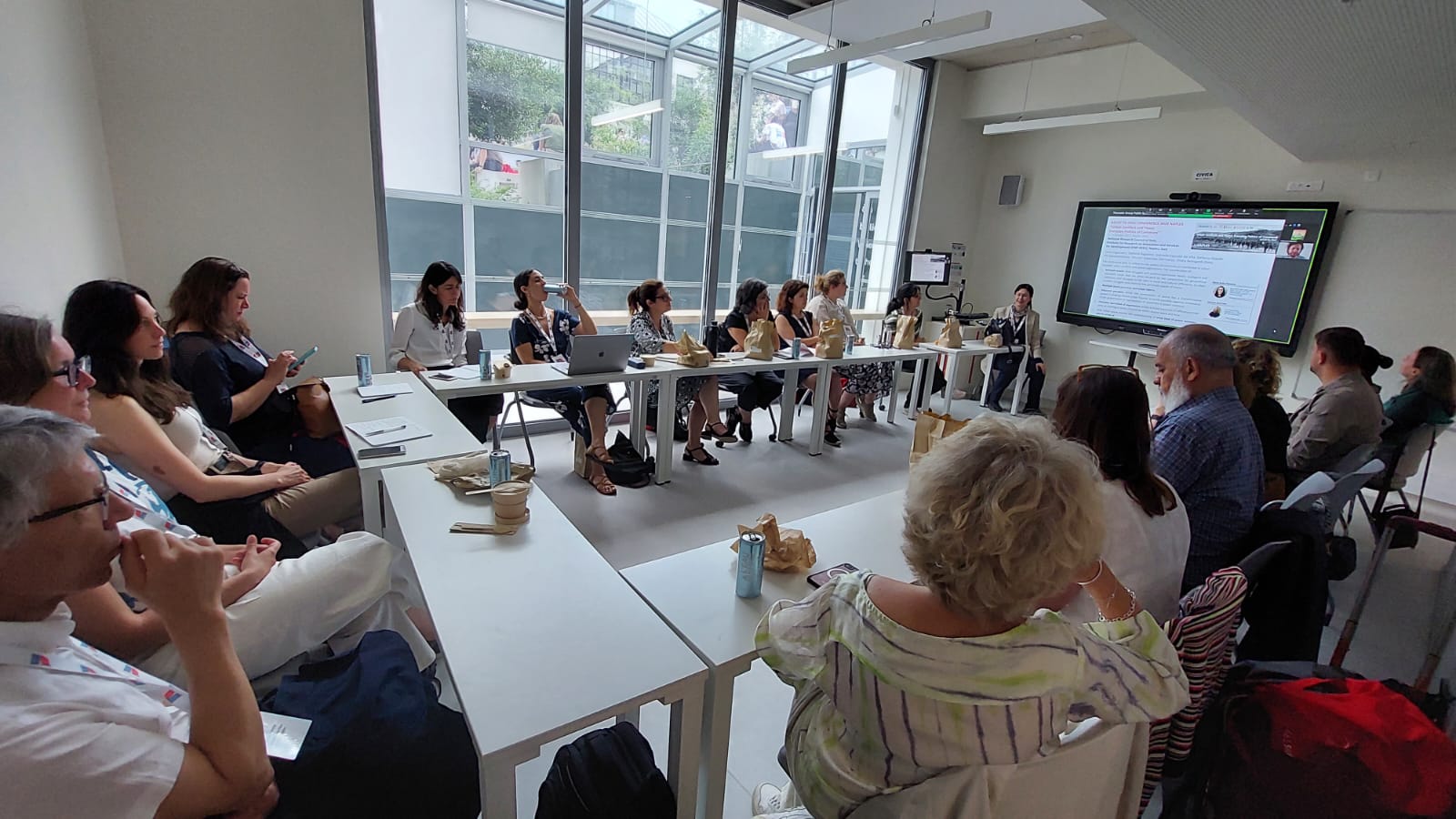THEMATIC GROUPS
- Details
- Parent Category: THEMATIC GROUPS
- Category: Public Spaces and Urban Cultures
The thematic group on Public Spaces and Urban Cultures was responsible for TRACK 08: PUBLIC SPACE Planning for cultural diversity, peace and the experience of places.
This track had a total of nine sessions with the following topics:
- Peace and inclusion
- Approaches, age, and gender
- Transformations
- Cultures
- Typology and morphology
- Regeneration and environment
- Infrastructure
The track hosted a total of 51 presentations. The sessions were well attended, and discussions continued beyond the track sessions during the congress.
Members of TG PSUC also organised and participated in special sessions/ roundtables on the themes: Unlocking the future of planning; Built environment education; (Un)Care and Austerity. Learning From New Urban Care Commoning Practices and Policies part I;
(Un)Care and Austerity. Learning From New Urban Care Commoning Practices and Policies part II; Doing Justice To Time-Sensitive Urbanism Part I
The annual TG PSUC meeting was held during the conference, in the presence of three of its Advisory Board members, current members, and congress participants. The presentation and update on TG PSUC’s activities were followed by a brainstorming session for the next 2024-2026 theme, which will be used as the basis for preparing the new call for contributions.

- Details
- Parent Category: THEMATIC GROUPS
- Category: Public Spaces and Urban Cultures
We are pleased to inform you that at the AESOP conference in Paris, 8-12 July 2024, the TG PSUC coordination transitioned from the 2022-2024 team, comprised of Christine Mady (main coordinator, Aalto University, Finland), Tihomir Viderman (BTU Cottbus-Senftenberg, Germany), and Matej Nikšič (Urban Planning Institute of the Republic of Slovenia, Slovenia) to the 2024-2026 team, which will include Tihomir Viderman (main coordinator, BTU Cottbus-Senftenberg, Germany), Matej Nikšič (Urban Planning Institute of the Republic of Slovenia, Slovenia), and Evangelia Athanassiou (Aristotle University of Thessaloniki, Greece). We warmly thank Christine for her tremendous efforts and outstanding achievements during her role as main coordinator, and welcome Evangelia to the team! During this transition the TG PSUC continues with the preparation of the 2024-2026 theme, which will be shared with the group members early in the autumn.
- Details
- Parent Category: THEMATIC GROUPS
- Category: Planning Theories
- Details
- Parent Category: THEMATIC GROUPS
- Category: New Technologies & Planning
AAA We will have a
New Technology and Planning Thematic Group Meeting at the AESOP Cogress in Paris
The meeting will be held on Tuesday 9 July at h 1-2pm
Room C.S12
M - 1 place Saint Thomas d'Aquin
You are cordially invited to join!
- Details
- Parent Category: THEMATIC GROUPS
- Category: Urban Futures
The TG Urban Futures will use the opportunity of the AESOP Annual Conference in Paris for a relaunch. The LOC invited a complete track on the topic of futuring, which will be used to gather ideas and activities. Watch out for an announcement on the TG Gathering. In addition, Thomas Machiels (UAntwerpen) will become co-chair of the TG Urban Futures! Thomas is an expert on scenario techniques and has been active already in previous meetings. Last, find us also on LinkedIn with more news and activities.
- Call for abstracts: Inclusive and Cohesive Urban Development in European Cities - European Reflections and Learnings for a Post-War Urban Planning
- AESOP TG on ETHICS, VALUES & PLANNING - COLLOQUIUM 8: "The Crisis of Democracy in the Age of Cities", May 16, 4-5.30 PM (CET) with Juval Portugali
- CALL FOR PAPERS TIME/LESS SENSING, PLANNING, DESIGNING IN COMPLEX CITIES AND REGIONS (EXTENDED)
- AESOP TG PSUC Conference Cyprus Symposium “Constructing Peace through Public Space: What publics? Whose commons?”

